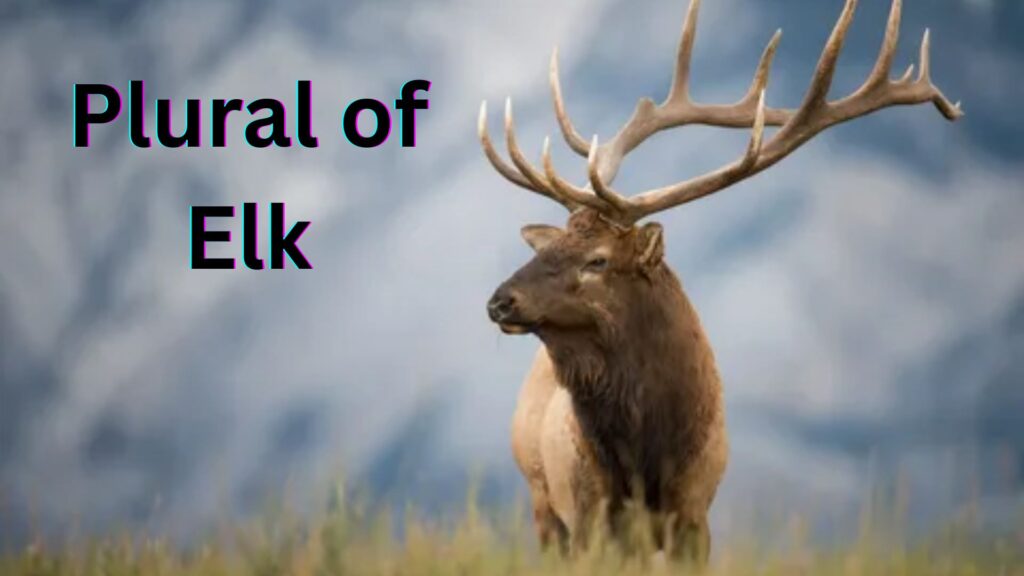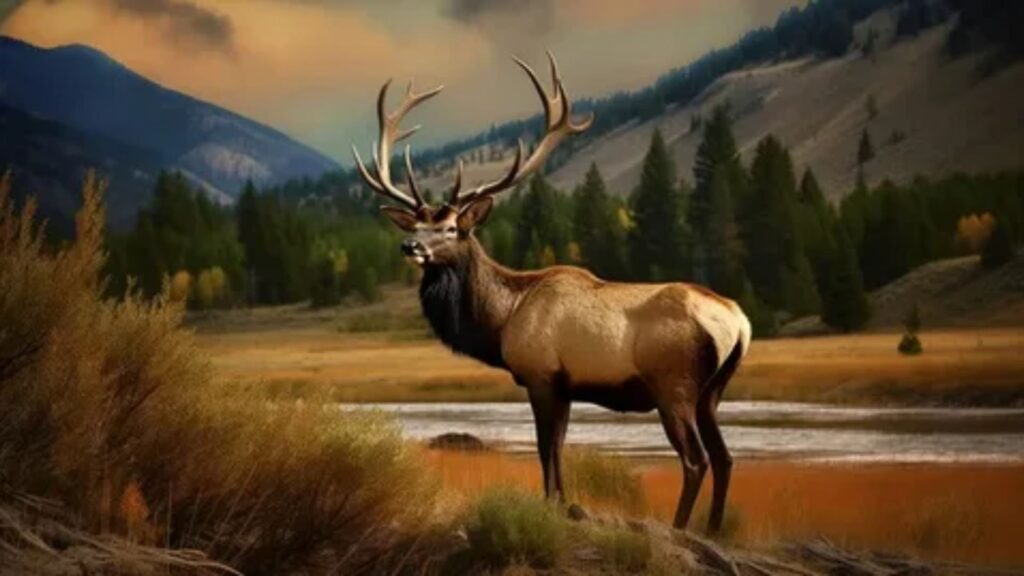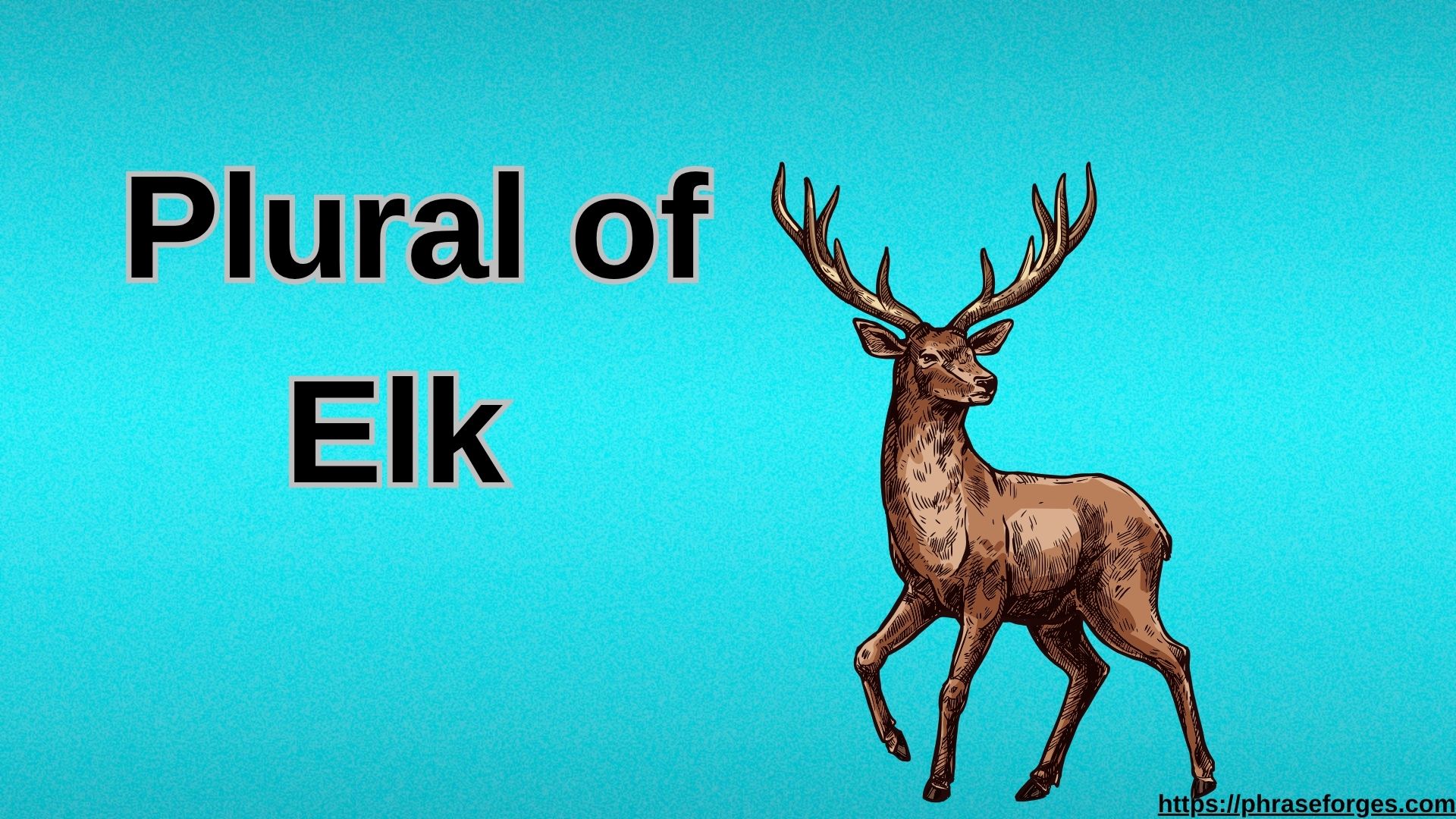If you’ve ever paused mid-sentence wondering, “Wait, is it elk or elks?”, you’re not alone. English is full of irregular plural nouns words like sheep, deer, and yes, elk, that don’t change in form when pluralized. Understanding the plural of elk can help you write and speak more naturally, whether you’re drafting an email, writing wildlife articles, or simply talking about nature.
What Is the Plural of Elk?

The plural form of elk is simply elk. Unlike most nouns that add –s or –es in their plural forms, elk follows an irregular pattern similar to sheep, deer, and moose.
- Singular: I saw an elk near the river.
- Plural: We spotted several elk grazing in the valley.
Adding “elks” is technically understood, but it’s nonstandard in modern English and rarely used outside historical or regional texts.
✅ Quick Grammar Rule:
If you can swap in “deer” and the sentence still works, then elk behaves the same way.
How to Spot Elk Plural in Context
You can usually identify plural elk usage by looking at:
- Verbs signaling plurality: “There are elk” (plural) vs. “There is an elk” (singular).
- Articles: “A” or “an” indicate singular; no article (or “some”) often signals plural.
- Sentence context clues: References to “herds,” “several,” or numbers usually indicate plurality.
Examples of Elk in Singular and Plural Sentences
Here’s how elk singular and plural usage plays out in different contexts:
- Singular:
“An elk wandered across the hiking trail, blocking our path.” - Plural:
“We counted at least twelve elk feeding at the tree line.”
Notice how elk doesn’t change form, but surrounding words like verbs and determiners help indicate number.
Email Scenario Examples
Here’s how this looks in real-world writing:
1️⃣ Singular Example – Reporting an Elk Sighting
Subject: Elk Spotted Near Campground
Hi Emma,
I wanted to let you know that an elk was grazing just outside the main trail near Camp Pinewood this morning. It seemed calm but kept its distance.
Best,
Jason
2️⃣ Plural Example – Discussing a Herd of Elk
Subject: Herd of Elk Near Lodge
Hi Derek,
We saw about 15 elk near the lodge early today. They stayed close to the riverbank and moved toward the woods after sunrise.
Let’s remind visitors to keep at least 100 yards away if they spot them.
Thanks,
Laura
These examples illustrate how contextual plural identification (verbs and numbers) clarifies meaning even though elk doesn’t add an “s.”
Herd of Elk: A Collective Noun
When discussing multiple elk as a group, English often uses the collective noun: “herd of elk.” This term is common in wildlife biology and outdoor reporting.
- “A herd of elk was seen crossing the Yellowstone River.”
- “Researchers tracked a herd of elk migrating south.”
Why Not “Elks”?

Historically, “elks” appeared in older texts influenced by Old English elch and Old Norse elgr. Today, however, most style guides including Merriam-Webster and Oxford recommend using elk for both singular and plural.
The only exception might be when referring to different species or subspecies, where “elks” can occasionally be used:
- “The zoo houses several elks, including both American and European varieties.”
Still, this usage is rare and feels dated in modern English.
Irregular Plural Noun Patterns (Comparison Table)
Here’s a quick reference comparing elk plural to similar nouns:
| Singular | Plural | Notes |
|---|---|---|
| Elk | Elk | Same form, like deer or moose |
| Deer | Deer | No change in plural |
| Moose | Moose | No change, irregular noun |
| Sheep | Sheep | No change, irregular noun |
| Bison | Bison/Bisons | Both used, but “bison” is standard |
Elk in Media and Literature
You’ll often see elk plural in wildlife reports and documentaries:
- “There are elk grazing near Mammoth Hot Springs” (CBS News).
- Field & Stream writes: “Hunters tracked several elk across the ridge at dawn.”
These examples reinforce that plural elk stays unchanged, even in formal writing.
Fun Etymology of Elk
The term “elk” comes from Old English elch and Old Norse elgr, meaning “moose” in Europe but referring to Cervus canadensis (wapiti) in North America. Interestingly, wapiti, from a Cree word meaning “light-colored deer,” is still used in some regions to avoid confusion between elk and moose (which Europeans sometimes call “elk”).
Common Mistakes and Fixes
Here’s what to watch for when using elk plural:
❌ Incorrect: “I saw several elks on the hill.”
✅ Correct: “I saw several elk on the hill.”
❌ Incorrect: “There was a herd of elks moving quickly.”
✅ Correct: “There was a herd of elk moving quickly.”
Key Takeaways
- The plural of elk is elk, not “elks,” in standard English.
- Use context clues verbs, articles, and numbers to show singular or plural.
- For groups, say “herd of elk.”
- Avoid “elks” unless referring to multiple species in scientific or archaic contexts.

